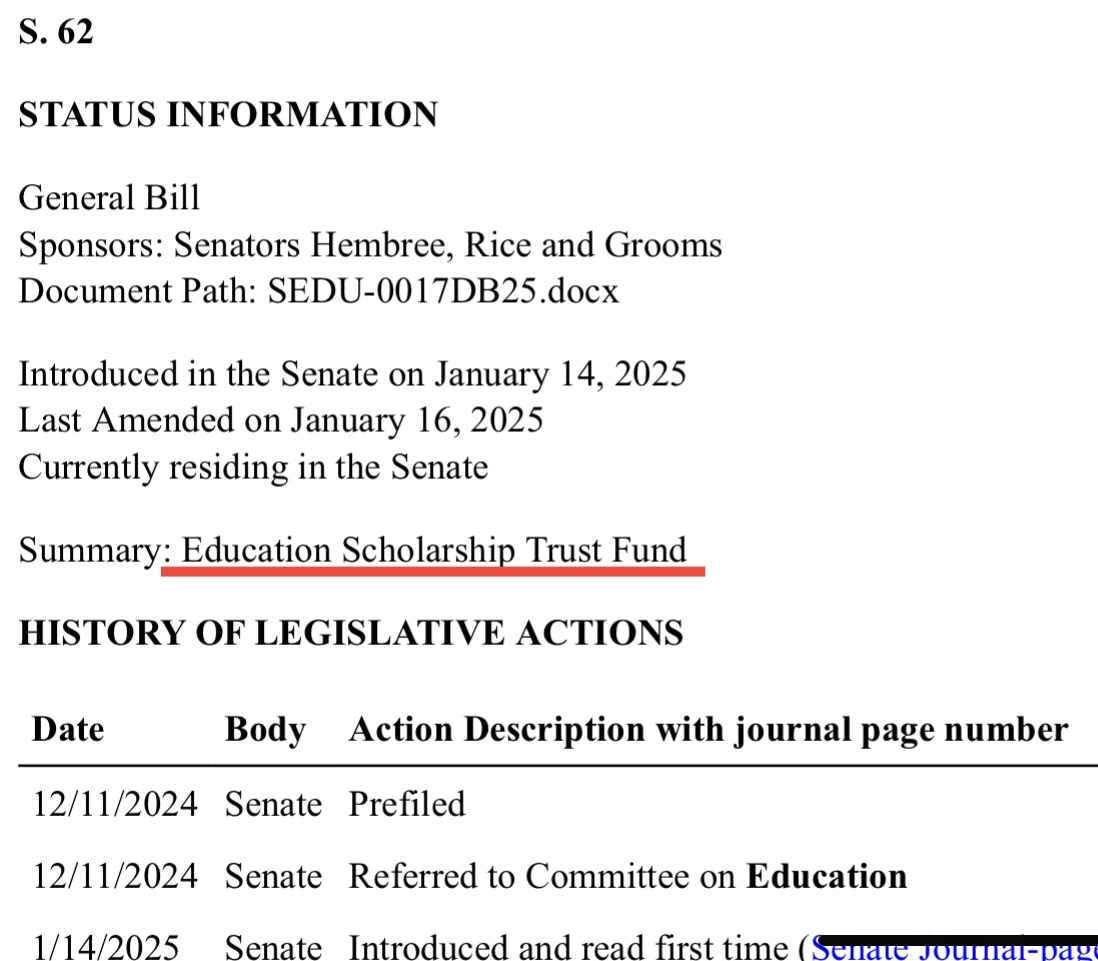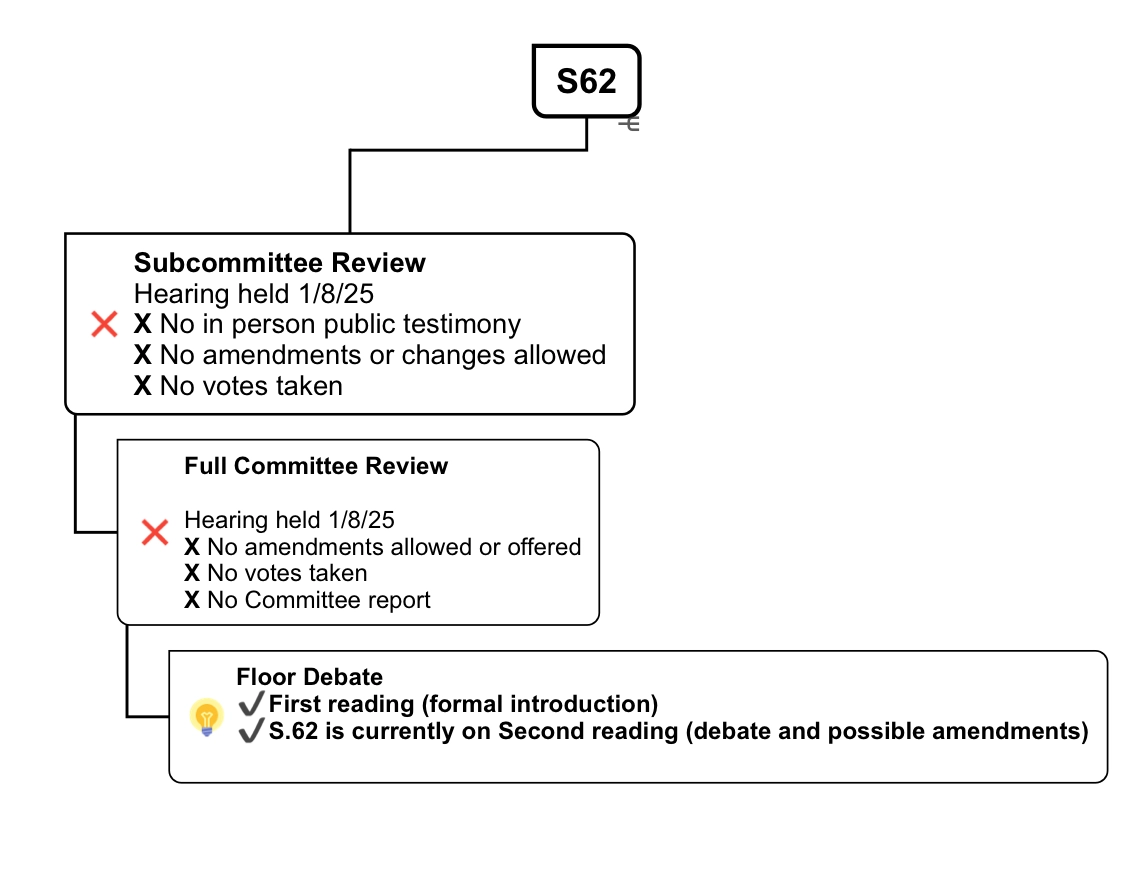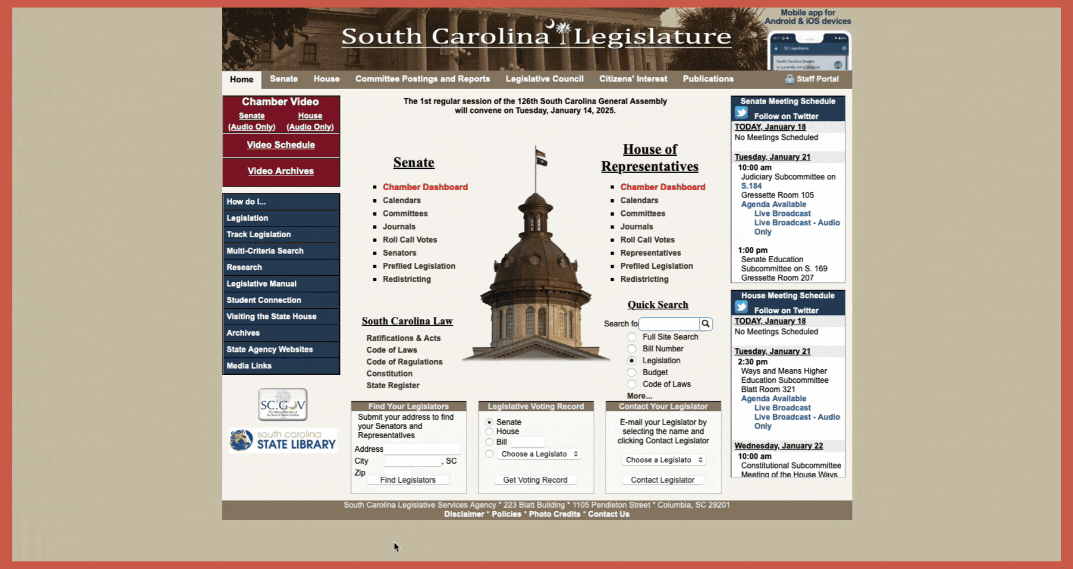Our South Carolina Senate’s decision to bypass key parts of the legislative process for S.62 should alarm every citizen.
No bill, no matter how many times it’s been debated in past sessions, should ever skip steps in the legislative process. But that’s precisely what happened here.
S.62, which we call the Cheese Bait Bill or perhaps a more familiar term, government school choice, is the new version of S.39, which was recently found unconstitutional. While some claim the language is unchanged, that’s not accurate.

How the Senate Bypassed the Process
A bill should go through every step of the legislative process, without taking any shortcuts. Subcommittee and committee hearings are where lawmakers scrutinize the text, debate amendments, cast votes, and, most importantly, hear from the public. Skipping these steps means skipping accountability. These hearings document the discussions, revealing who’s pushing the bill, who’s challenging it, and who’s staying silent. They also serve as a voting record, showing exactly where lawmakers stand on something every voter should pay attention to.

Before the session even began, they shut down the in-person committee hearings, blocking public testimony, committee debate, committee votes, and committee amendments. Then, as soon as the session started, they pulled the bill straight out of committee, placed it on the Senate calendar, and on January 15, began Senate floor discussions on it.
Here is the link where you can find the January 8, 2025, Committee hearings. These hearings aren’t exciting, but listen closely as the senators on the Education Committee try to explain their way out of bypassing key steps in the legislative process.

During Senate debates, some lawmakers openly admitted to bypassing these steps. Concerns were raised about skipping the normal vetting process, yet the bill moved forward anyway.
The excuses for skipping the vetting process on S.62?
“We’ve discussed this issue before, so we know what the bill is trying to do.” Really? This is a new Senate body, with roughly 30% of its members being freshmen.
“The language in the bill is the same as S.39.” No, it’s not. The language has drastically changed.
“It’s urgent because the Supreme Court overruled S.39.” Which is all the more reason to slow it down and scrutinize every word.
Now, the Senate Education Committee did allow input via email. Many citizens wrote emails detailing their concerns about S.62. However, these communications were never discussed during committee sessions. And how can legislators question emails? Instead, the only action taken was to post a link to them online, which was done only after a senator suggested it. The people took the time to voice their concerns, and their representatives simply dumped their emails into a public folder.
Click here to read the emails. (Be patient—this link works when it feels like it.)
Why This Is a Problem
When a bill skips scrutiny and the process is tossed aside for convenience, who exactly are these lawmakers representing?
There is something deeply wrong with the way legislation is being handled in South Carolina. The process should be clear, consistent, and easily accessible for public engagement. Instead, what we see is a system that bends to the influence of powerful lobbying groups.
This is not how representative government is supposed to work.
Laws Should Not Be Rushed
The legislative process was designed to be slow and deliberative for a reason: to prevent the unchecked expansion of government power and the rapid growth of laws that erode individual liberties. Yet, our SC lawmakers routinely pass over 200+ bills per session, an impossible number if each one were actually receiving the scrutiny it deserves.
Every bill deserves a fresh examination through the full legislative process.
We, the people of South Carolina, deserve full representation. Every bill grows government and impacts our lives, and for that reason, our voices should never be sidelined. When lawmakers rush a bill through the process (skipping debate, public testimony, and proper scrutiny), they aren’t representing the people; they’re shutting them out.
“The legislative department is everywhere extending the sphere of its activity and drawing all power into its impetuous vortex.” — James Madison, Federalist No. 48
When lawmakers push bills through without these steps, it’s a direct threat to our freedoms.
Disclaimer: The views expressed in this article are those of the author and do not constitute legal or professional advice. ConservaTruth assumes no liability for any actions taken based on this content. Read more.

Subscribe to ConservaTruth's Email Newsletter for curated insights on South Carolina's legislative activities and conservative viewpoints, delivered straight to your inbox! With vetted and easy-to-understand information, our newsletter empowers you to become an informed and engaged citizen, actively participating in safeguarding our cherished Constitutional values. Don’t miss out on crucial updates—join our community of informed conservatives today!





Comments